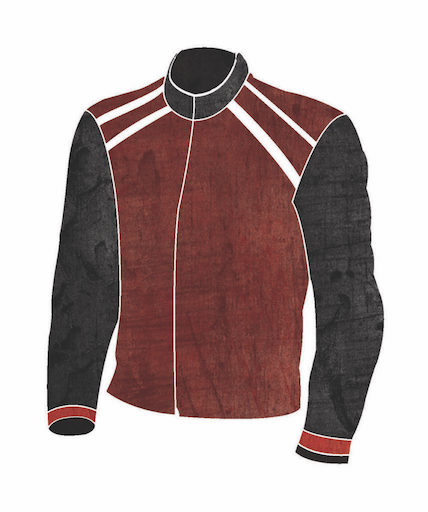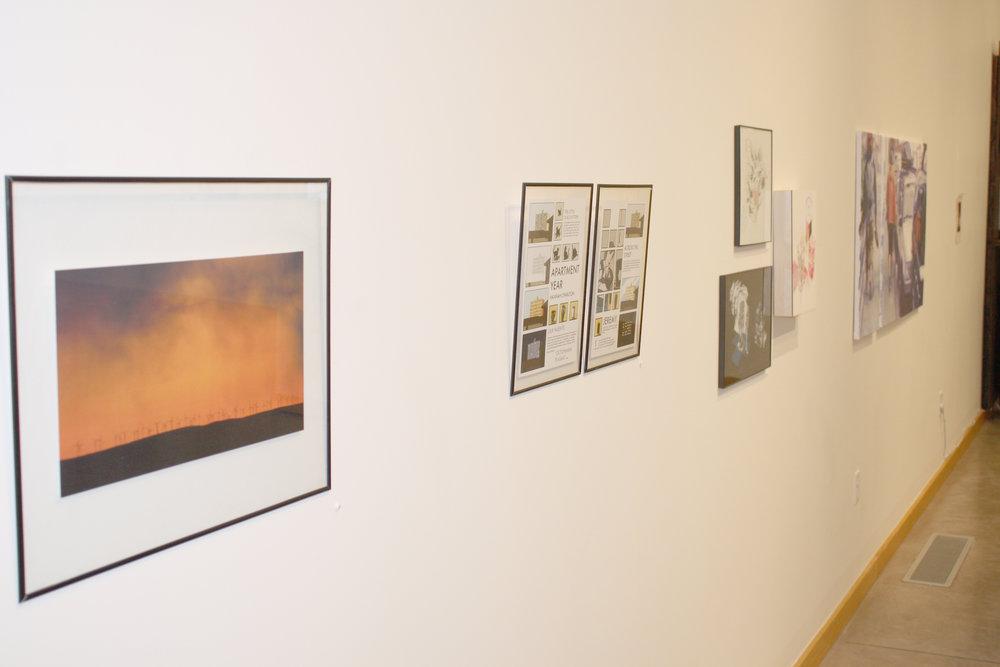The scene: A man on a desperate search for dignity and sandwiches.
The players: Cool Whip cast members.
The places: A basement, an ex-girlfriend’s house, a nationally-televised Ping-Pong tournament and a Chuck E. Cheese.
The tagline: Adventure, dignity, sandwiches.
The actual place: Stage II.
The actual time: noon, on Saturday, March 8.
Cool Whip practice begins with a warm-up.
This one in particular was a game called “Zip Zap Zop.” Members were required to say “zip,” “zap” or “zop” in as many different forms as quickly as they could, while also taking something away from the previous player’s pronunciation of the word.

The team then moved on to longform improvisation, which means the group creates a long story made up of several short scenes that members make up on the spot.
Most people do not know how structured improvisation can be, it can even be serious, senior Cool Whip director, Ramsey Troxel said.
“The most challenging thing about Cool Whip has been directing it,” Troxel said. “I’m very disorganized, which does not help when you are leading a group of people.”
However, getting to know the people is also the best part of Cool Whip, Troxel said.
“That’s why we do Cool Whip as a casted thing instead of a club,” Troxel said. “Because that’s something I’ve noticed; I’ve seen other improv clubs from other states and they’re usually not that good at performing if it’s not a set group of people who are there every single week at the same time doing the same thing.”
After about a half-hour or so of practicing longform, the group has created a narrative that spans several locations, had multiple characters, common themes and a clear linear progression.
Freshman Alyson King played a reigning Ping-Pong tournament champion in this particular narrative.
Usually one thought leads to another until she can create her character, King said. “The first thought that pops into your mind — you just roll with it.”
The best part of Cool Whip is bringing joy to the audience, King said.
“Everyone encourages the other person to be funny, and builds them up,” King said.
King plans to continue performing in Cool Whip in next three years at Whitworth.
“It’s definitely something that I can look forward to on a weekly basis,” King said. “I come back here and I feel like I’m home. It’s great.”
After the longform exercise, the performers practiced another form of improvisation: the shortform. Shortform improvisation is similar to the improvisation seen commonly in the actual Cool Whip shows or in similar shows, such as “Who’s Line Is It Anyway?’”
The team played games such as “Party Quirks”: a game in which one player must guess the attributes or the identities of the other players in the exercise.
Junior Caleb Drechsel, for example, was assigned the role of Marie Antoinette.
“Man, I’d really love some cake,” Drechsel said, in the midst of the exercise.
The most challenging part of Cool Whip for Drechsel is coming into a space where he cannot be analytical and think things through, at least not very far, he said.
“[It’s] beyond just stepping on a stage and going, ‘Oh, I have a pickaxe in my hand’, and moving on from there,” Drechsel said.
It has also been a relief from the stress of academics, Drechsel said.
“[Cool Whip] forces me to get out of my comfort zone and explore spaces that I’m not used to,” Drechsel said.
Directing the team this year has made Cool Whip a different experience, Troxel said.
“I have to make sure everything gets done so it’s a little bit more stressful in that regard,” Troxel said. “Whereas before, Cool Whip was more of a relaxing thing for me. But that’s not bad I knew that would be the case going in. It’s more rewarding in different ways.”
The majority of people in this group are new to Cool Whip, which was positive for the team, Troxel said.
“We intentionally try to get more than just theatre people,” Troxel said. “Theatre people — we’re around each other a lot so that can come into the practices sometimes, but it hasn’t really at all this year which has been very nice. It makes things a lot easier.”
The Cool Whip practice contained much of what takes place in an actual show, including some of the same games.
During a show, members are constantly reacting to what is happening on stage and exploring different possibilities, Drechsel said.
“It’s the sort of thoughts you don’t always remember after the show,” Drechsel said. “But somehow you stepped on stage and you stepped off stage and something funny happened.”
Contact Mikayla Nicholson at mnicholson17@my.whitworth.edu










 Spokane?
Spokane?